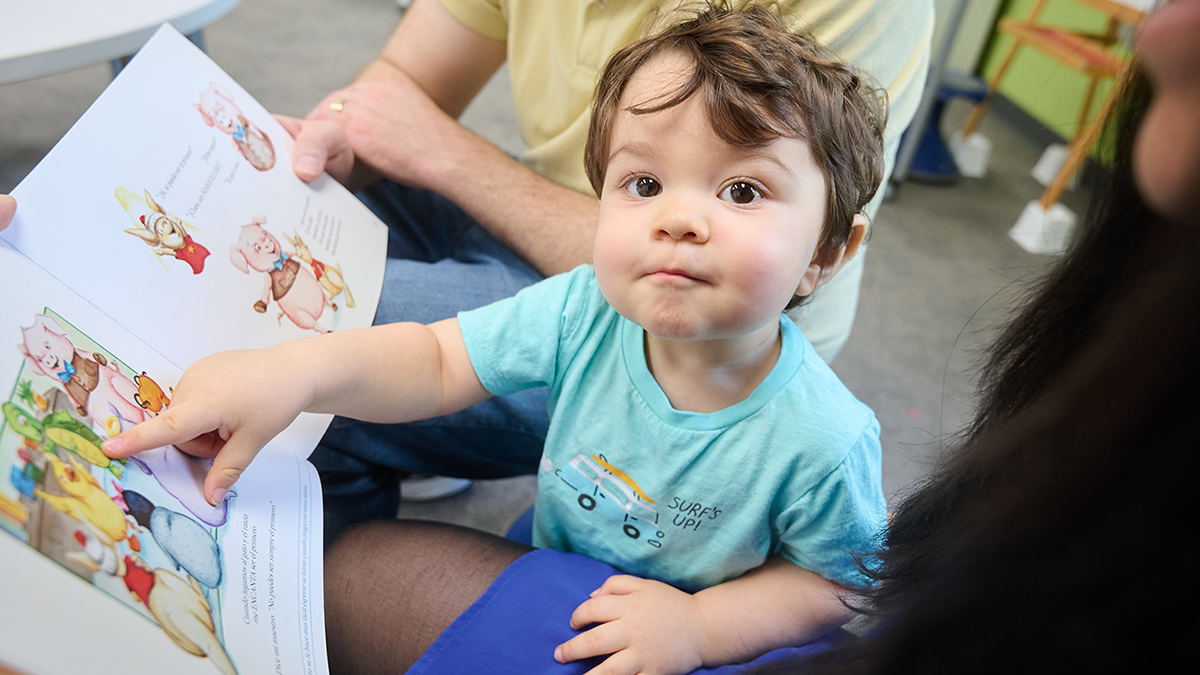What to know
Act early if you're concerned about your child's development. Early intervention helps children improve their abilities and learn new skills and is likely to be more effective when it is provided earlier in life rather than later.

Overview
Act early on developmental concerns to make a real difference for your child and you! If you're concerned about your child's development, don't wait. You know your child best.
Early intervention helps children improve their abilities and learn new skills. Take these steps to help your child today:
1. Tell your child's doctor or nurse if you notice any signs of possible developmental delay and ask for a developmental screening.
If you or the doctor still feel worried,
2. Ask for a referral to a specialist, and
3. Call your state or territory's early intervention program to find out if your child can get services to help.
What is Early Intervention?
Early intervention:
- Is the term used to describe services and support that help babies and toddlers (from birth to 3 years of age in most states/territories) with developmental delays or disabilities and their families.
- May include speech therapy, physical therapy, and other types of services based on the needs of the child and family.
- Can have a significant impact on a child's ability to learn new skills and increase their success in school and life.
- Programs are available in every state and territory. These services are provided for free or at a reduced cost for any child who meets the state's criteria for developmental delay.
Why Early Intervention is Important
Earlier is better!
Intervention is likely to be more effective when it is provided earlier in life rather than later.1
- Pennsylvania clinical psychologist
The connections in a baby's brain are most adaptable in the first three years of life. These connections, also called neural circuits, are the foundation for learning, behavior, and health. Over time, these connections become harder to change.1
- Georgia pediatrician
Intervention works!
Early intervention services can change a child's developmental path and improve outcomes for children, families, and communities.1
- Kansas mom
Help your child, help your family!
Families benefit from early intervention by being able to better meet their children's needs from an early age and throughout their lives.1
- Florida mom
To find your state or territory's early intervention contact information, go to cdc.gov/FindEI.
What To Do While You Wait for an Appointment
Families may have to wait many weeks or months for an appointment to see a specialist or start intervention services for their child. If this happens, there are some simple things you can do to help your child's development while you wait.
1. Make the Most of Playtime
Try some simple tips and activities in a safe way, like reading books, singing songs, and playing outside together. Talk with your child's doctor and teachers if you have questions or for more ideas on how to help your child's development.
2. Download CDC's Milestone Tracker App
Use CDC's easy-to-use app with illustrated checklists to track your child's development from 2-months to 5-years. The app can help you communicate with your child's doctor or early intervention contact about your child's milestones and any concerns. The app also provides tips for encouraging your child's development.
For more tips and activities to support your child's development at each stage of life visit, CDC's Positive Parenting Tips.
